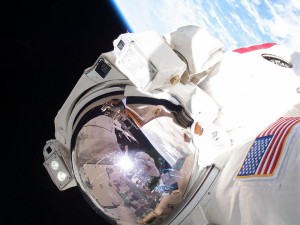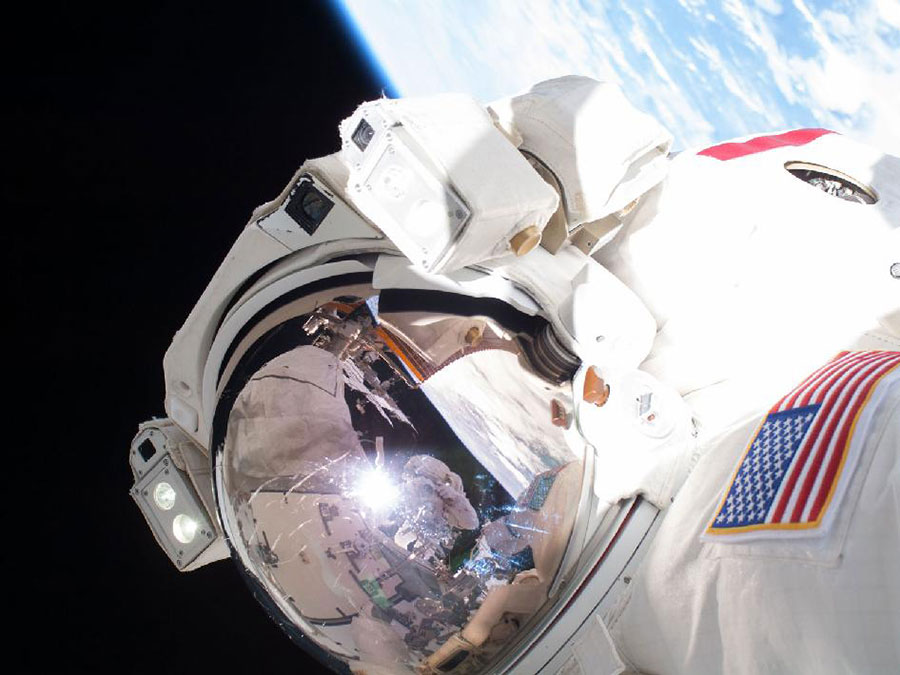USC awarded NASA grant for first time
The School of Pharmacy has received a grant from NASA to explore the potential effects of medicine on astronauts in space. The $600,000 grant was announced last month and is the first such donation from NASA in USC history.

Space drugs · New research funded by NASA will examine the potential health benefits of drug producing fungi on astronauts in space. – Photo courtesy of NASA
The funds were donated by the national Space Biology Program and will be parceled out over the next three years.
Graduate students Jillian Romsdahl and Junko Yaegashi will use the funds with Dr. Clay Wang, associate professor of chemistry in the Dornsife College of Letters, Arts and Sciences who also holds a joint appointment in the School of Pharmacy. They will work with a team from the Jet Propulsion Laboratory in Pasadena to research microgravity climates and their impact on drug discovery.
“We’ve been interested in drug discovery at USC and, more specifically, the study will look at fungi and how fungi makes drugs both in a lab environment and in outer space,” Wang said. “Examples of drugs that are made by fungi are penicillin and statin.”
This will be the first time fungi will be studied in an outer space research experiment.
The study will involve the team at USC working in collaboration with astronauts on the International Space Station and a research team within the Planetary Protection Group at JPL. Organisms that have been studied at the lab at USC will be sent to the International Space Station by way of the Kennedy Space Center in Florida, where students will hand deliver them to the launch pad.
According to Wang, USC has been using a genomic approach, which means that the team sequences the entire genomes of the drug-producing fungi.
“Most of the time [fungi] do not make the drug but some of the compounds are anti-fungal, so what happens is the organisms do not make anti-fungi until they encounter another fungi and they basically need to kill their enemy, which results in the drug being created,” Wang said.
Romsdahl expressed her excitement about getting the research underway.
“It gives us the opportunity to begin to answer some very exciting research questions regarding fungal behavior in outer space,” she said in an email to the Daily Trojan. “This project gives us the chance to understand fungal secondary metabolism in a microgravity environment and will likely build a platform for drug development in outer space.”
Traditionally, the School of Pharmacy has received funding from the National Institutes of Health, and on occasion the Department of Energy and the Department of Defense for drug discovery related projects.
“The research will help uncover new basic knowledge that other NASA researchers and engineers can use to solve problems confronting human exploration of space or that could lead to new biological tools or applications on Earth,” NASA said in a press release.
Romsdahl said that Wang was crucial to the funding of the project.
“Professor Clay Wang is an excellent professor and Ph.D. adviser. Without him, this project would not exist,” she said in an email. “I am looking forward to the intriguing research discoveries that lie ahead.”
Wang said that there are also future projects in the pipeline and he hopes to secure more grants in the coming years.

